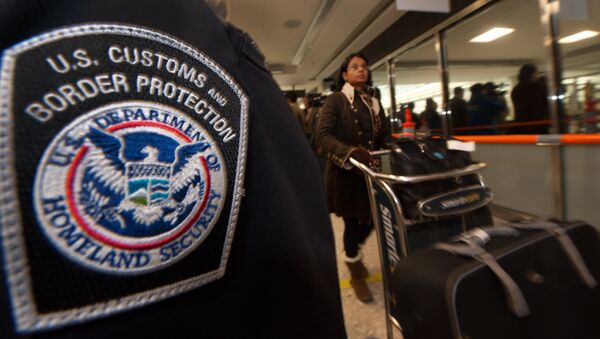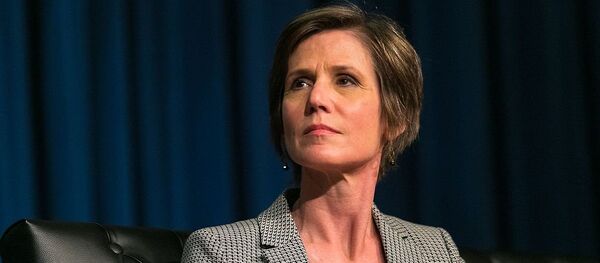WASHINGTON (Sputnik) — When asked whether she had any concerns that the ban will cause more refugees to go to the EU and complicate the migration situation there, Vicini said, “No. You know as well as I know that what type of refugee reception the United States has. It’s mostly quota refugees, and people who are vetted, who are in a process.”
“I don’t think they will automatically sort of revert to Europe,” Vicini explained. “These are people who are in the process of getting vetted for the United States. I don’t know what they are going to do but I don’t see why they would all of a sudden sort of abandon this path to go to Europe."
On Friday, Trump signed an executive order that directs his administration to block refugees from coming into the United States for 120 days; indefinitely suspend the entry for Syrian refugees; and restrict immigration from Iran, Iraq, Libya, Somalia, Sudan and Yemen.
“The US is not receiving as you well know refugees in the same way as the EU does. People are presenting themselves on our shores or walking over border, that’s not possible to come to the United States in that way. So, it’s a completely different case,” Vicini concluded.
The travel ban, aiming to boost the country's security, has sparked controversy around the world and led to multiple protests in the United States.
On Sunday, the Democratic Party members of US Senate said they were planning to introduce a bill, aimed at revoking the decree, while the German and Dutch foreign ministers have published a joint statement, asking for details on the issue.
The EU has been struggling to manage a massive refugee crisis which escalated in 2015 with hundreds of thousands of people form the Middle East and North Africa seeking asylum in the EU member states. In December, the International Organization for Migration (IOM) reported that over 362,000 migrants arrived in Europe in 2016.



